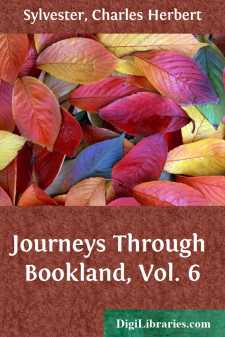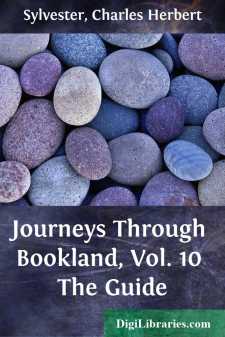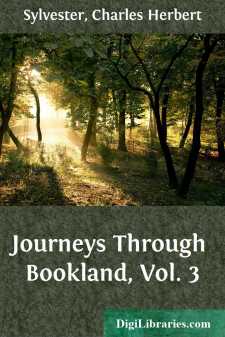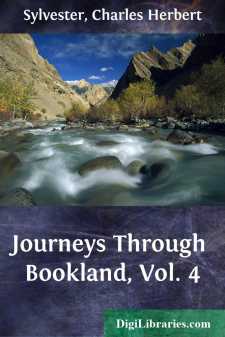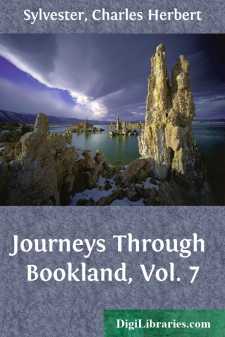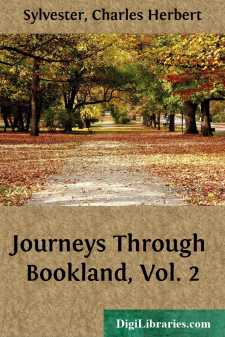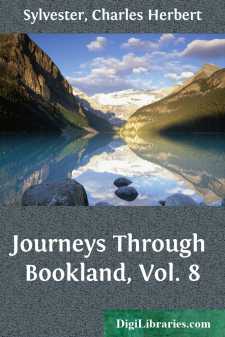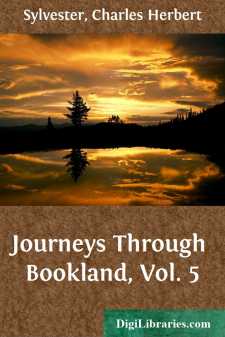Categories
- Antiques & Collectibles 13
- Architecture 36
- Art 48
- Bibles 22
- Biography & Autobiography 813
- Body, Mind & Spirit 142
- Business & Economics 28
- Children's Books 17
- Children's Fiction 14
- Computers 4
- Cooking 94
- Crafts & Hobbies 4
- Drama 346
- Education 46
- Family & Relationships 57
- Fiction 11829
- Games 19
- Gardening 17
- Health & Fitness 34
- History 1377
- House & Home 1
- Humor 147
- Juvenile Fiction 1873
- Juvenile Nonfiction 202
- Language Arts & Disciplines 88
- Law 16
- Literary Collections 686
- Literary Criticism 179
- Mathematics 13
- Medical 41
- Music 40
- Nature 179
- Non-Classifiable 1768
- Performing Arts 7
- Periodicals 1453
- Philosophy 64
- Photography 2
- Poetry 896
- Political Science 203
- Psychology 42
- Reference 154
- Religion 513
- Science 126
- Self-Help 84
- Social Science 81
- Sports & Recreation 34
- Study Aids 3
- Technology & Engineering 59
- Transportation 23
- Travel 463
- True Crime 29
Journeys Through Bookland, Vol. 6
Categories:
Description:
Excerpt
HORATIUS
By Lord Macaulay
Note.—This spirited poem by Lord Macaulay is founded on one of the most popular Roman legends. While the story is based on facts, we can by no means be certain that all of the details are historical.
According to Roman legendary history, the Tarquins, Lucius Tarquinius Priscus and Lucius Tarquinius Superbus, were among the early kings of Rome. The reign of the former was glorious, but that of the latter was most unjust and tyrannical. Finally the unscrupulousness of the king and his son reached such a point that it became unendurable to the people, who in 509 B. C. rose in rebellion and drove the entire family from Rome. Tarquinius Superbus appealed to Lars Porsena, the powerful king of Clusium for aid and the story of the expedition against Rome is told in this poem.
Lars Porsena of Clusium
By the Nine Gods he swore
That the great house of Tarquin
Should suffer wrong no more.
By the Nine Gods he swore it,
And named a trysting day,
And bade his messengers ride forth
East and west and south and north,
To summon his array.
East and west and south and north
The messengers ride fast,
And tower and town and cottage
Have heard the trumpet’s blast.
Shame on the false Etruscan
Who lingers in his home,
When Porsena of Clusium
Is on the march for Rome.
The horsemen and the footmen
Are pouring in amain
From many a stately market-place;
From many a fruitful plain.
From many a lonely hamlet,
Which, hid by beech and pine,
Like an eagle’s nest, hangs on the crest
Of purple Apennine;
* * * * * * * *
There be thirty chosen prophets,
The wisest of the land,
Who alway by Lars Porsena
Both morn and evening stand:
Evening and morn the Thirty
Have turned the verses o’er,
Traced from the right on linen white
By mighty seers of yore.
And with one voice the Thirty
Have their glad answer given:
“Go forth, go forth, Lars Porsena;
Go forth, beloved of Heaven:
Go, and return in glory
To Clusium’s royal dome;
And hang round Nurscia’s altars
The golden shields of Rome.”
And now hath every city
Sent up her tale of men:
The foot are fourscore thousand,
The horse are thousand ten.
Before the gates of Sutrium
Is met the great array.
A proud man was Lars Porsena
Upon the trysting day.
For all the Etruscan armies
Were ranged beneath his eye,
And many a banished Roman,
And many a stout ally;
And with a mighty following
To join the muster came
The Tusculan Mamilius,
Prince of the Latian name.
But by the yellow Tiber
Was tumult and affright:
From all the spacious champaign
To Rome men took their flight.
A mile around the city,
The throng stopped up the ways;
A fearful sight it was to see
Through two long nights and days.
For aged folks on crutches,
And women great with child,
And mothers sobbing over babes
That clung to them and smiled,
And sick men borne in litters
High on the necks of slaves,
And troops of sunburnt husbandmen
With reaping-hooks and staves,
And droves of mules and asses
Laden with skins of wine,
And endless flocks of goats and sheep,
And endless herds of kine,
And endless trains of wagons
That creaked beneath the weight
Of corn-sacks and of household goods,
Choked every roaring gate.
Now, from the rock Tarpeian
Could the wan burghers spy
The line of blazing villages
Red in the midnight sky.
The Fathers of the City,
They sat all night and day,
For every hour some horseman came
With tidings of dismay.
To eastward and to westward
Have spread the Tuscan bands;
Nor house nor fence nor dovecote
In Crustumerium stands.
Verbenna down to Ostia
Hath wasted all the plain;
Astur hath stormed Janiculum,
And the stout guards are slain.
Iwis, in all the Senate,
There was no heart so bold,
But sore it ached, and fast it beat,
When that ill news was told.
Forthwith up rose the Consul,
Uprose the Fathers all;
In haste they girded up their gowns,
And hied them to the wall....


